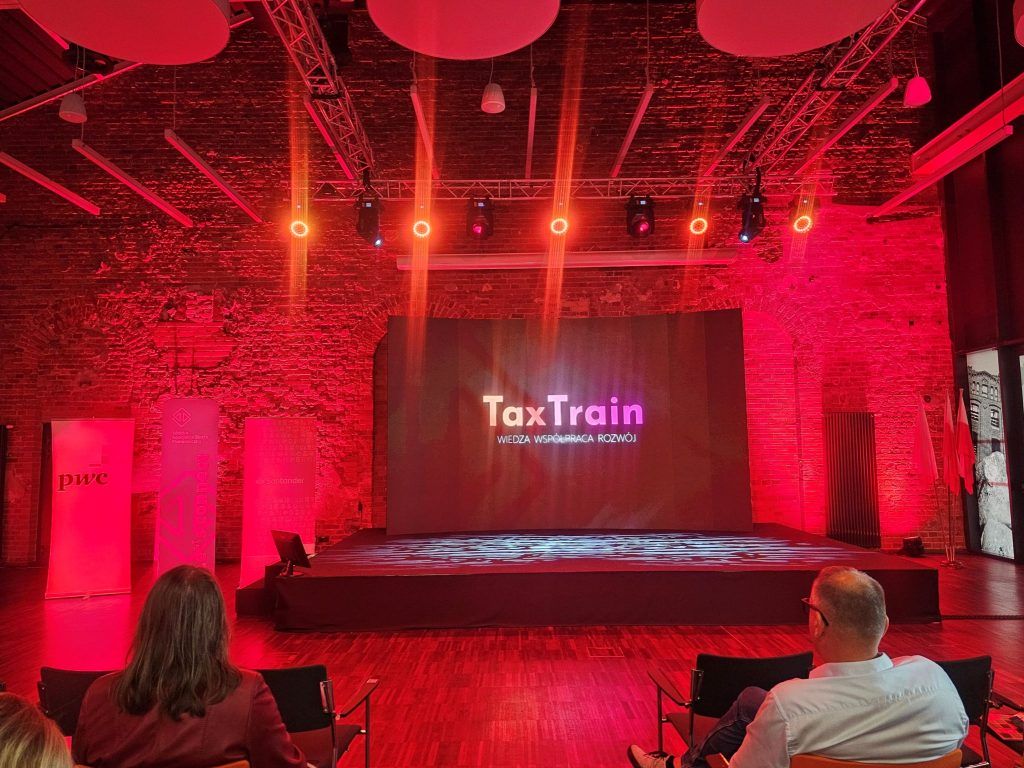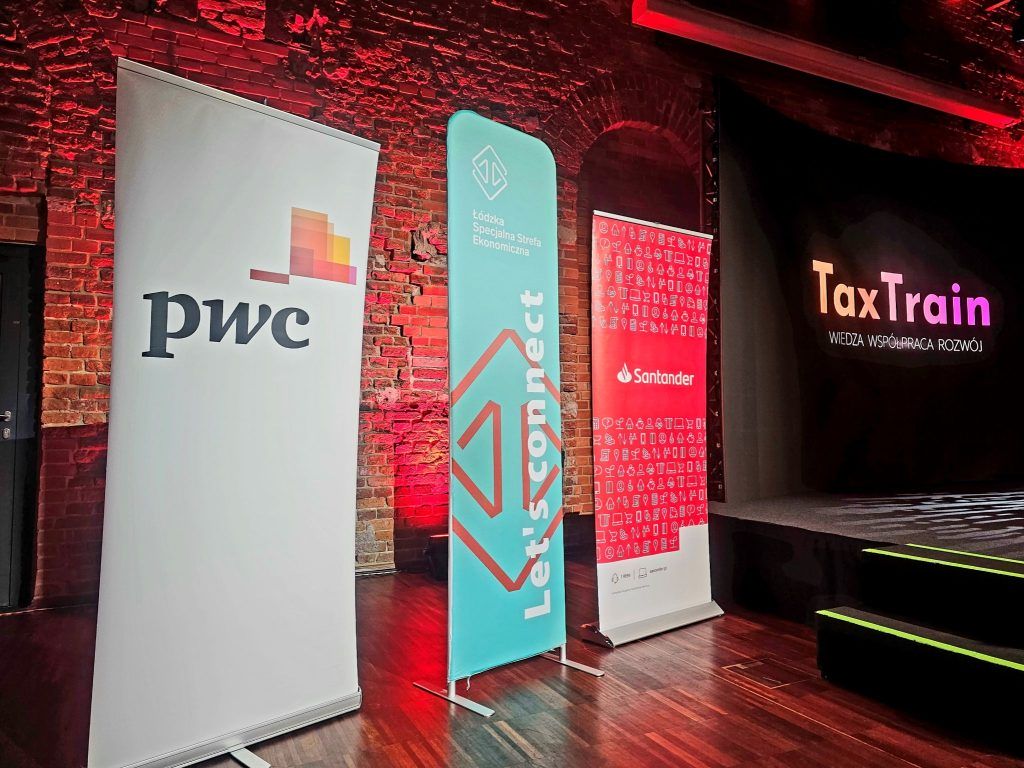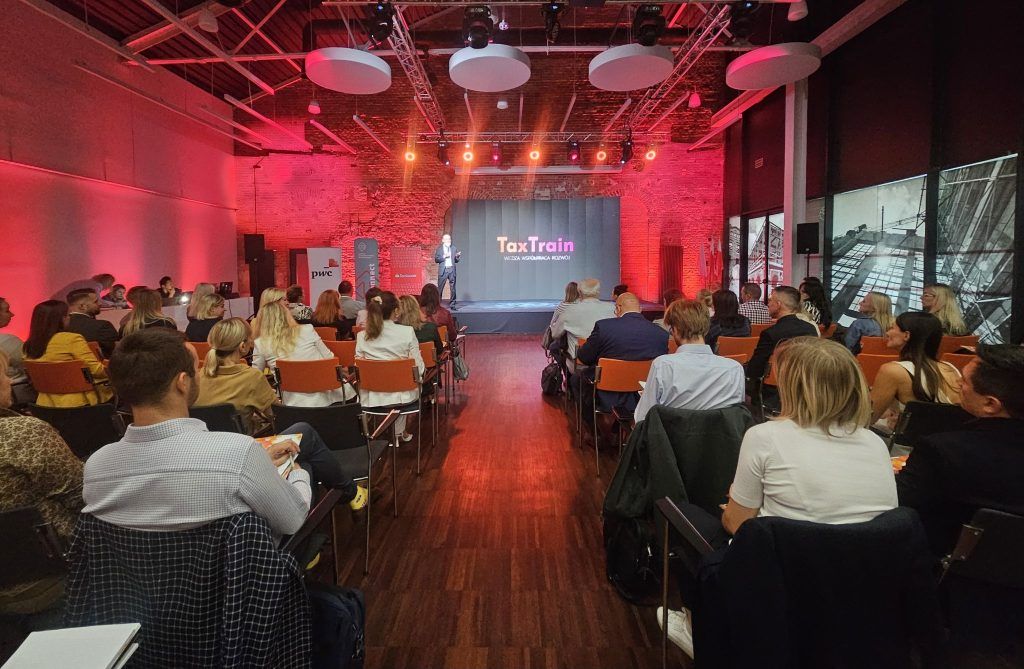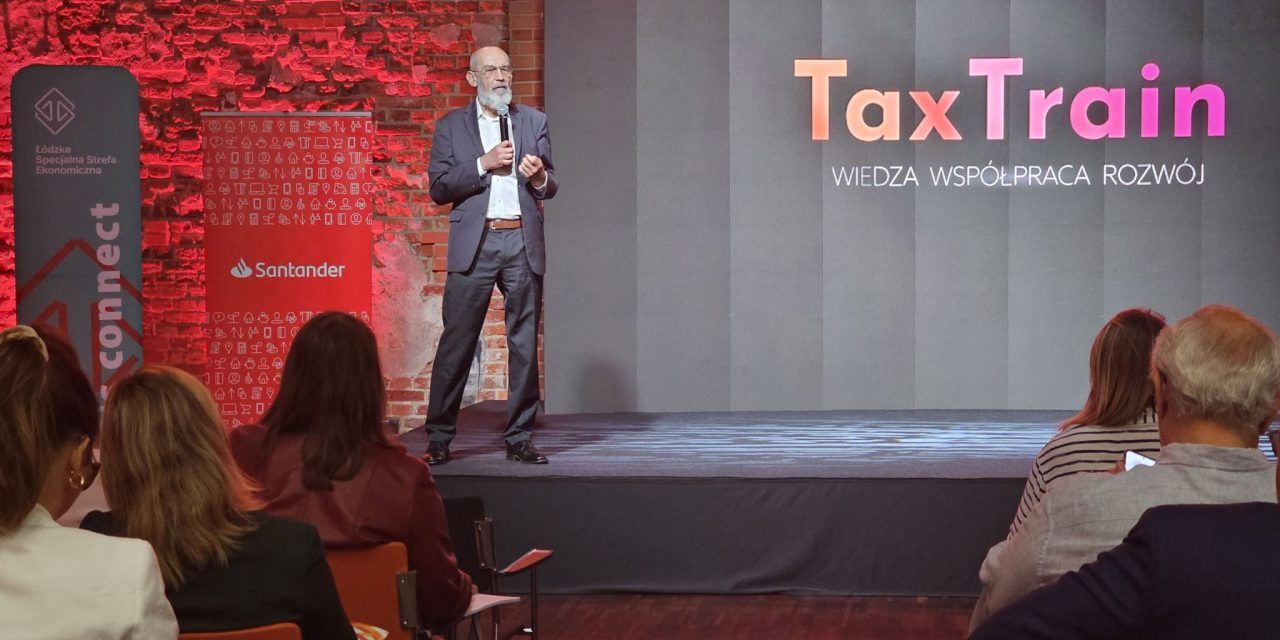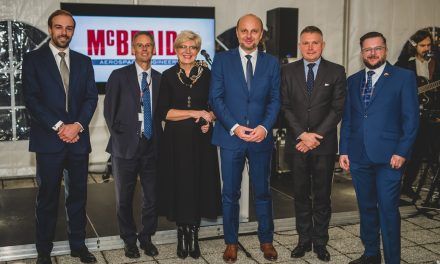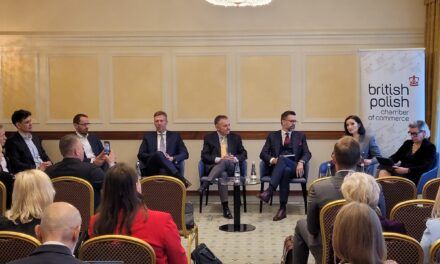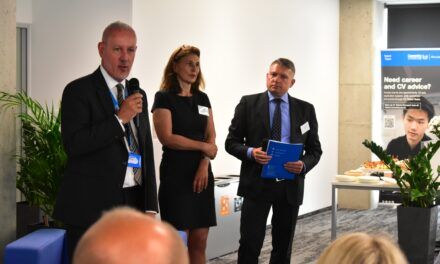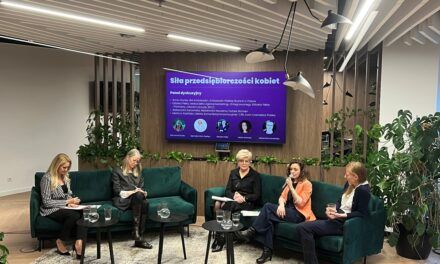Łódź Special Economic Zone, Santander Bank Polska, PwC and the BPCC held a training event at the ŁSEZ’s headquarters. The subject matter focused around the correct tax treatment of state aid used by businesses in the investment process, and the training was conducted by tax specialists from PwC. The correct settlement of taxation of support in the scope of energy subsidies was an import element of the training, an issue with which many intensive users of energy (especially in manufacturing) have found difficult.
The event was opened by Dorota Lombardi, the director of the ŁSEZ’s Business Development and Support Department, and the BPCC’s chief advisor, Michael Dembinski, who spoke about current trends in trade and investment between Poland and the UK.
The keynote presentation was from Santander Bank Polska’s economist, Grzegorz Ogonek, who set out the current global macroeconomic picture, against which he presented the likely course of the Polish economy for the immediate future.
Mr Ogonek suggested that inflation would stop falling in the first quarter of next year and, having reached 5.5%, would start rising slowly again. The big known unknown is the behaviour of Polish consumers, he said. Investment is holding up, but is defensive in nature, with firms investing to cut costs or to shore up supply chains through nearshoring. Unless government policies change, there will be a steep drop in EU fund take-up next year that will also negatively affect GDP growth, he said.
Other key takeaways from Mr Ogonek’s presentation:
- China’s economy won’t rebound in 2024 or 2025 – Chinese consumers aren’t borrowing
- Poland’s public-sector deficit will continue to grow at an accelerating rate
- It’s still wait-and-see on the Polish labour market
- Polish real interest rates are back in negative territory
- The zloty will lose value over the course of 2024
The training session with PwC was concluded by a working lunch, during which participants discussed the implications for their firms of what they had learnt from the trainers. The event also included a useful networking element.
